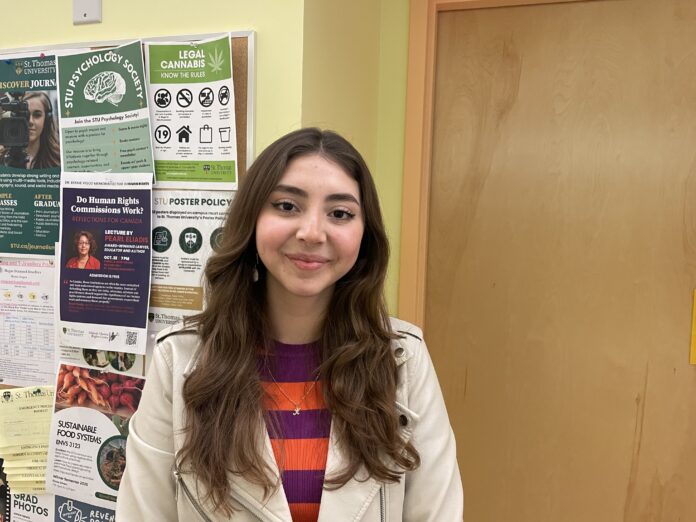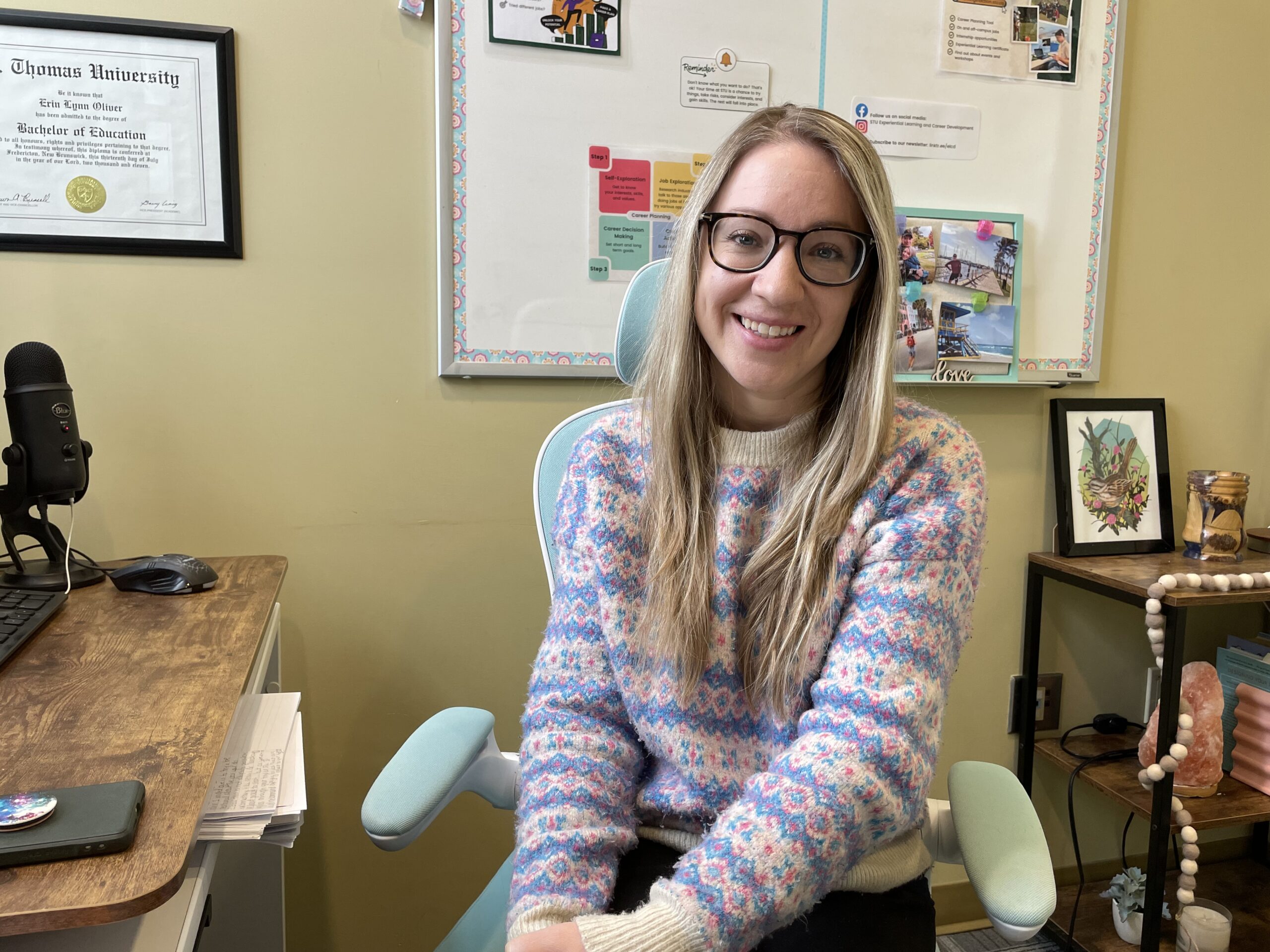
With the increase in the cost of living and the difficulty in finding employment, some international students have resorted to working retail and customer service jobs.
The difficulties that come with working off-campus, such as commuting, irregular hours and low wages, have made international students wonder how they can access more meaningful employment opportunities.
The Conference Board of Canada published a study in January called “How International College Students Use Career Supports,” which showcased the difficulties international students face when transitioning from university to the Canadian labour market.
The study found that international students who partake in Work Integrated Learning (WIL) or experiential learning have a better chance of finding more meaningful jobs and opportunities that can help them develop professional careers in their fields of study.
These WIL opportunities often take form as on-campus jobs, co-ops and off-campus internships, which are better paid and have more regular hours; however, not all students find them accessible.
Kristel Paredes is an international student who has struggled to find employment on campus and get internships in her field of study. She has had to rely on retail and customer service jobs since she arrived in Canada.
“I became discouraged to apply to the on-campus jobs for international students because they told me I already had Canadian work experience,” said Paredes.
“They didn’t even let me go through the interview process.”
Paredes currently works at a hotel, but before the winter break, she was also working in Ricki’s, a clothing store in the Regent Mall. She had to quit to visit her home country for the holidays.
During her time in the clothing store and the hotel, Paredes couldn’t fill the 20 hours she was allowed to work.
“They had warned me from the beginning that they couldn’t promise me the 20 hours I could work,” she said. “They would only give me one or two shifts that barely amounted to six hours together.”
International students are now permitted to work up to 24 hours a week at off-campus occupations.
She explained that she would like to be able to work more than the new cap to cover her expenses due to the increasing cost of living.
“My rent will be increased in July and if it was difficult for me to pay it before, I don’t [know] how I’m going to pay it once the price increases,” said Paredes.
For Paredes, the issue doesn’t lie only in the number of permitted hours international students can work, but the inability of employers to provide the full 24 hours, which has forced them to look for several jobs to fill the gaps.
“I think the more hours we can work the better, because the issue is not that I can’t work the 24 hours,” she said. “The problem comes when you have to get two jobs and organize your availability within them, find transportation and so on.”
A possible solution for international students’ financial concerns

According to Career Development Advisor Erin Feicht, St. Thomas University provides a plethora of resources to increase students’ chances of getting more meaningful jobs.
From resume development to lessons on how to use LinkedIn and the off-campus internships they provide, career development and the experiential learning office at STU aim to equip students with experiences that will be useful for their professional lives.
Paredes said she is aware of some of the opportunities that STU provides to students however, she believes there is room for improvement.
“I think if they can provide more opportunities, it would make things easier for international students,” said Paredes. “We wouldn’t have to commute during the winter, which is something that has made it harder for me to go to work.”
Despite their efforts, Feicht mentioned that the university would like to do more, but with budget cuts it has been difficult for them to allocate resources to support students.
“We need more money, just this year the government cut our funding for our STU works program,” Feicht said. “We used to have 10 positions and this year we only have eight.”
“Somehow we need to convince the government [that] more money is beneficial to students, so I think that’s where we are really struggling.”
Erin Rose, senior researcher associate at the Conference Board of Canada and one of the researchers involved in the recent study, explained that advocating for more government funding is pivotal for the development of WIL opportunities.
“Employers don’t receive the same financial subsidies for hiring international students as they do with domestic students and obviously that’s a big barrier for an employer,” said Rose.
Rose believes that the “funding gap is substantial” and she hopes that through reports such as these, academic institutions can use the results and data to make a case for the funding needed.
“To expand that funding, particularly with federal funding, that’s just really making it equitable between international students and domestic students and doing so would make good sense based on the findings just from this report.”
The report showcased that investing in WIL opportunities for international students was beneficial for the Canadian economy long-term, as it would allow students to better transition from university or college to the Canadian job market.
Other solutions for international student’s meaningful job search
Despite funding concerns, Feicht mentioned other ways students could maximize their job search and find jobs that are more aligned with their career goals.
She recommended students make connections, either by attending events and workshops with the experiential learning office, volunteering with companies they are interested in working with and reaching out to the Multicultural Association.
“It’s really about networking,” said Feicht. “I feel like making those connections can be super helpful.”
Networking was one of the main aspects mentioned in the Canada Conference Board study.
The study mainly showcases the importance of peer support to help international students with their professional journeys in the country.
STU incorporates a ‘Buddy Program’ through the university’s international student association which gives incoming students the opportunity to be paired with an international and domestic upper-classmate to help ease them into Canadian culture.
However, the results of the study showcase that having peer support throughout their academic studies better helps them transition into the Canadian job market.
“Colleges that we have spoken to have implemented a peer mentorship approach with their career services reports good success from that, because students sort of have that personal connection with another,” said Rose.
Students in the research mentioned how not having connections in the industries they were interested in had inhibited their ability to find job opportunities with them.
Camila Baquerizo, a third-year international student from Ecuador, agrees that networking is pivotal to get better job opportunities.
Baquerizo said that if it wasn’t for her Human Rights internship class and the resources the experiential learning office provides, she would not have been able to make the contacts that helped her get the job opportunities she had so far in her time in Canada.
“I had to do a final presentation in front of government officials. In that presentation, I was able to meet my summer employer,” she said.
During the summer, Baquerizo worked in Pathways of Profession as a project manager, making government documents more accessible for people with disabilities.
After her placement ended, her summer employer served as a reference for her current position in GNB housing, analyzing different tenants’ handbooks to make housing more affordable for individuals in the province.
“Thanks to her and thanks to my resume, I was able to connect with my new employer,” she said.
Despite her personal success, Baquerizo is aware that some people are facing more difficulties in accessing these resources and making the most out of them.
In response, she encourages international students to get out of their comfort zones and apply to jobs they would like to work in, even if they feel they are not qualified for them.
“Don’t let a job description limit you to actually pursue the job,” Baquerizo said. “Know that rejection is a possibility but also know that acceptance is another possibility.”
